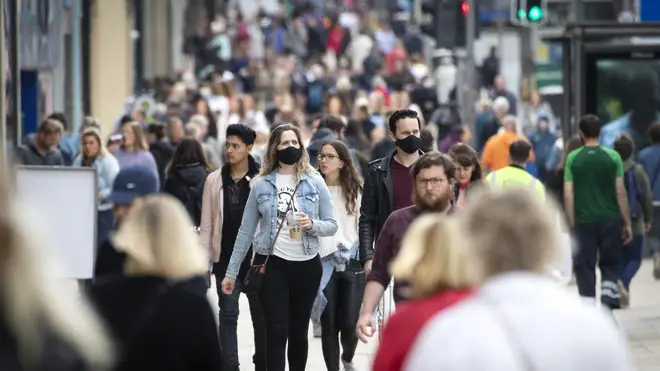
Shelagh Fogarty 1pm - 4pm
24 June 2022, 00:04

GfK’s long-running Consumer Confidence Index dropped one point to minus 41 in June, setting a new record low for a second successive month.
Consumer confidence has fallen to its lowest level since records began in 1974 as a “stark new economic reality” hits households, figures show.
GfK’s long-running Consumer Confidence Index dropped one point to minus 41 in June, setting a new record low for a second successive month.
Confidence in personal finances over the next 12 months fell three points to minus 28 – 39 points lower than this time last year.

Expectations for the general economic situation over the coming year also dropped, by one point to minus 57 – 55 points lower than last June.
The major purchase index, a measure of confidence in buying big ticket items, remained at minus 35, taking it to 30 points below last June’s figure.

Joe Staton, from GfK, said: “With prices rising faster than wages, and the prospect of strikes and spiralling inflation causing a summer of discontent, many will be surprised that the index has not dropped further.
“The consumer mood is currently darker than in the early stages of the Covid pandemic, at the result of the 2016 Brexit referendum, and even the shock of the 2008 global financial crisis, and now there’s talk of a looming recession.
“One thing is for sure, Britain faces a stark new economic reality and history shows that consumers will not hesitate to retrench and tighten their purse strings when the going gets tough.”
Linda Ellett, UK head of retail and leisure consumer markets at KPMG, said: “Consumer confidence continues to slump, but total retail sales are not falling at the same rate.
“The impact of the headwinds of inflation and higher prices is taking its toll on consumer demand for some discretionary goods and businesses. But there are tailwinds still supporting spending elsewhere, in the shape of high employment, pandemic savings levels, and desire for experience-based spending.
“Travel, hospitality and leisure spend is boosting sales of clothing, footwear and accessories, but could be a seasonal impact that weakens when summer ends.
“As essential costs continue to rise, as does the risk that further discretionary goods demand reduces in line with the consistently low levels of consumer confidence that we are seeing.”